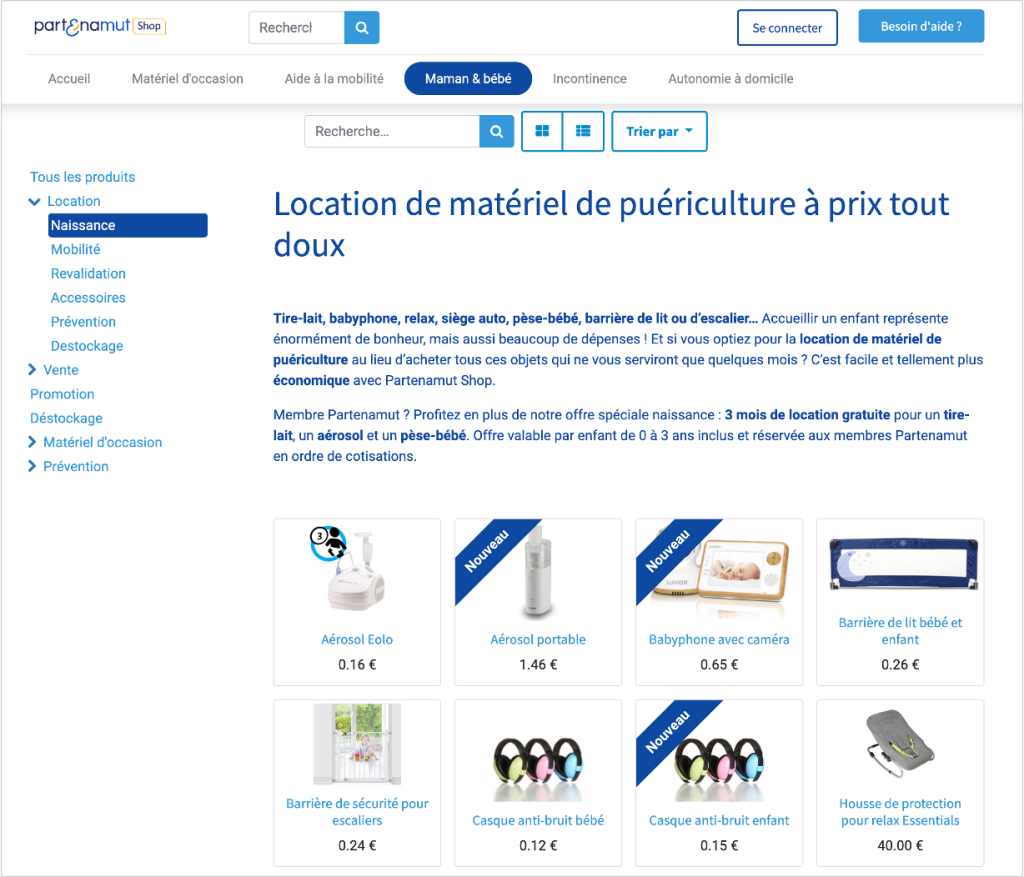Bouncy chair, baby food maker, wipe warmer, newborn ‘outfits’, baby carrier, video monitor, self-driving pram, baby shoes, white noise maker, a changing table. As you’ve probably already noticed, the list of items marketed to expectant parents goes on and on … and on. But what do you actually need? If you’re a first-time parent, it can be tough to tell the ‘must haves’ from the ‘nice to haves’ from the ‘better off avoiding’.
To help you ease the overwhelm, and figure out an approach that meets your needs, values, and lifestyle, we’ve gatherer some tips.
Ask advice from more experienced friends
Preparing your home for your baby’s arrival is of course a very personal experience, as you have your own preferences when it comes to colours, materials, and styles. However, when figuring out what kind of items to buy, it’s worth seeking advice from friends or colleagues who already have children. They’ll be able to share their tips and tricks about what worked for them, and what they wish they’d done differently.
If you don’t have friends or colleagues to ask (and even if you do), Mic Mac Minuscule is a great option! This Belgian company is all about helping parents prepare for their baby in a wallet-friendly, eco-friendly way. Their consultants are parents themselves who can give first-hand advice based on their experience and your situation! Read more on the Mic Mac Minuscule website and read our fun interview with one of their consultants, Anne Moermans.
Do your own research
Especially for larger items like baby beds or co-sleepers, prams, baby carriers, bouncy chairs etc, take the time to research different products and read reviews from other parents. Sometimes a much-talked-about item will be worth it because of how eminently practical it is … other times it might be completely over-hyped by a few celebrity users.
Consider factors such as safety, ease of use, and durability – if you’re hoping to have more children, then opting for better quality might pay off in the long run. In any case, those items should keep their value better, so you may be able to sell them for a decent price when you no longer need them.
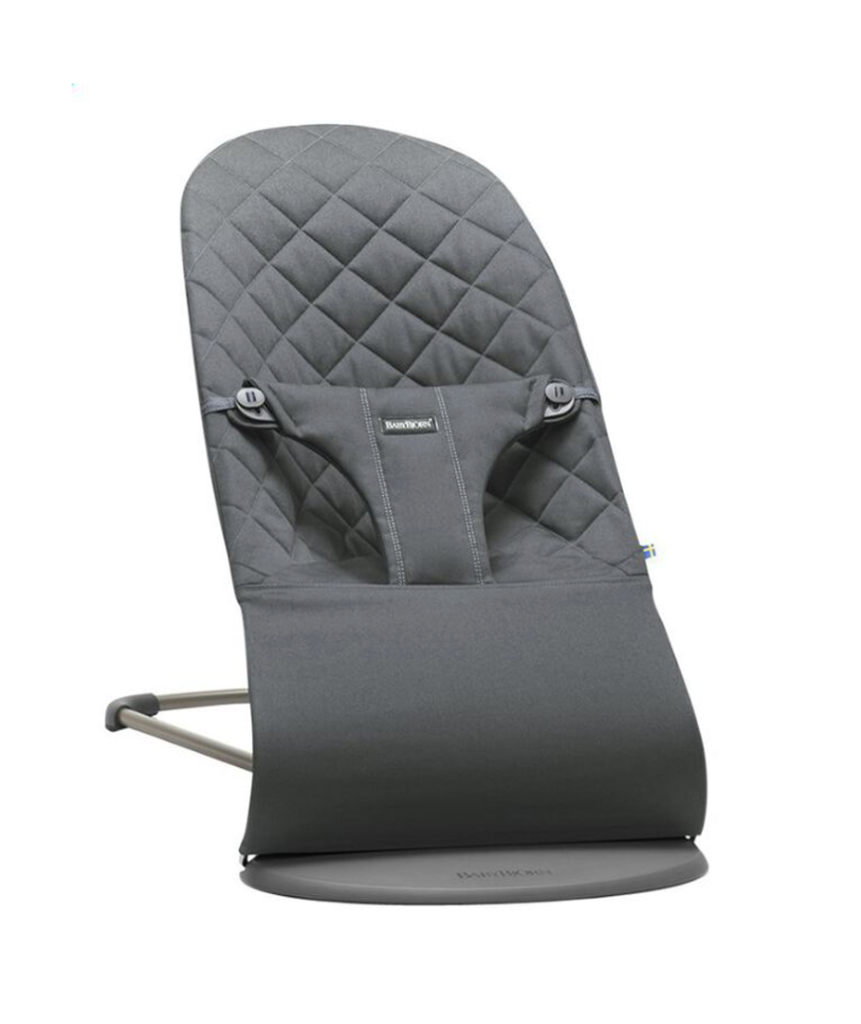
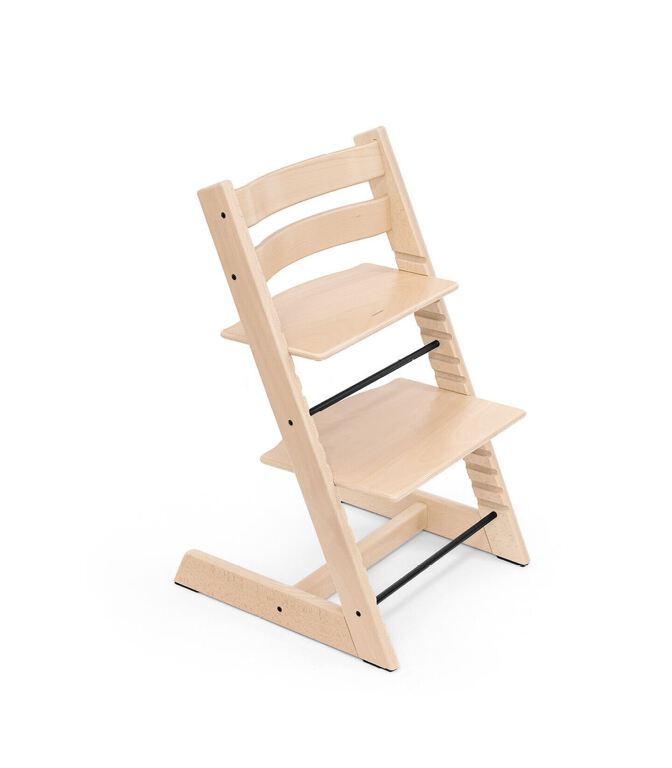
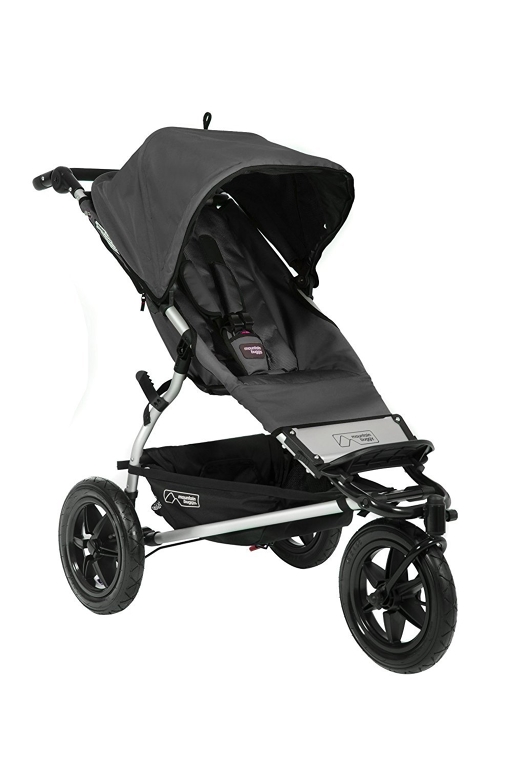
Consider your lifestyle
Every family is different, and it’s important to look at every purchase through the lens of your own lifestyle. Think about your daily routine – will you be spending more time on city streets or forest tracks? Then think about how best to transport your baby … maybe a baby carrier will make more sense than a voluminous stroller, or maybe a more rugged stroller with air-filled tyres is exactly what you need.
What about nighttimes? Will you have your baby sleeping in your room to start with? A stand-alone moses basket on a frame can be really pretty, but a co-sleeper that attaches to your bed might make nights during those early weeks and months more bearable.
Are you someone who loves cooking and will definitely make your own baby purees? Then you might get use out of a good baby food processor. Otherwise, it might just gather dust on your worktop.
Shop around or consider second hand, renting or borrowing
Having a baby can be an expensive affair – but there are ways to make your money go further!
Remember that in Belgium you can apply for your birth allowance as of 6 months of pregnancy, and you’ll receive it around 2 months before your estimated due date. This bonus of over €1000 per child (less for subsequent children in Brussels) can go a long way towards helping your source the items you need.
If you want to buy new and your budget is tight, compare prices and seek out the best offers. Big stores – like Orchestra in Zaventem, Anderlect or Drogenbos; Dreambaby in Zaventem or Drogenbos; Dreamland in Dilbeek, Vilvoorde, or Waterloo; BabyDump in Gent or Mechelen; BabyKid in Auderghem – are great for seeing items in person even if you then plan to find the best prices online. Like with any kind of consumer products, prices are often more competitive in Germany, France or The Netherlands, so a trip there – or to their online shops, like babymarkt, babywalz or even amazon.de / amazon.fr – can result in considerable savings.
Source second-hand baby items
Buying items second-hand is not only good for your bank balance, it’s also a more environmentally friendly option. And these days, finding great second-hand deals is easier than ever. Platforms like Facebook Marketplace and 2memain / 2dehands are great for matching local sellers and buyers, and even Vinted is worth considering for gently used (or even brand new) clothes. Petits Riens is another place to check regularly – I still remember scoring a Baby Bjorn bouncer, in great condition, for a fraction of the retail price in Petits Riens in Ixelles!
Here are some Brussels addresses for sourcing baby equipment and clothes:
- Les Petits Riens, especially their Baby Paradise boutique in Ixelles and the Ixelles Bailli store;
- La recyclerie Sociale, which sells upcycled furniture and decoration items in their shop in Saint Gilles
- La Ritournelle in Schaerbeek, which sells second-hand baby and maternity wear
- Rock ‘n Brol Baby (in French), an where you can create an online birth list of curated second-hand items
- Le monde d’Oscar.be (in French), another way to create an online birth list of curated second-hand items
- Mic Mac Minuscule (in English, French and Dutch), pre-loved, upcycled and sustainable items for a birth list or just as a way to source what you need
- Chez Bingo in Woluwe-Saint-Lambert, which sells (and buys) pre-loved baby clothes and maternity wear
- Other handy sources are: Facebook Marketplace (anything and everything!), Petitkiwi.be (clothes), Vinted (mainly clothes), 2memain / 2dehands.
Rent baby items for just as long as you need them
Renting items is another practical way to source what you need, or try things out before buying. And there are more options out there than you realise!
There are a number of Babytheeks across Brussels and beyond, where members pay an annual fee and can then borrow up to four items at a time – depending on the individual Babytheek, you can rent anything from changing cushions and bottler warmers to baby baths and car seats! Be warned though that Babytheeks limit the number of members at any one time, so there are often waiting lists … so sign up as soon as you can!
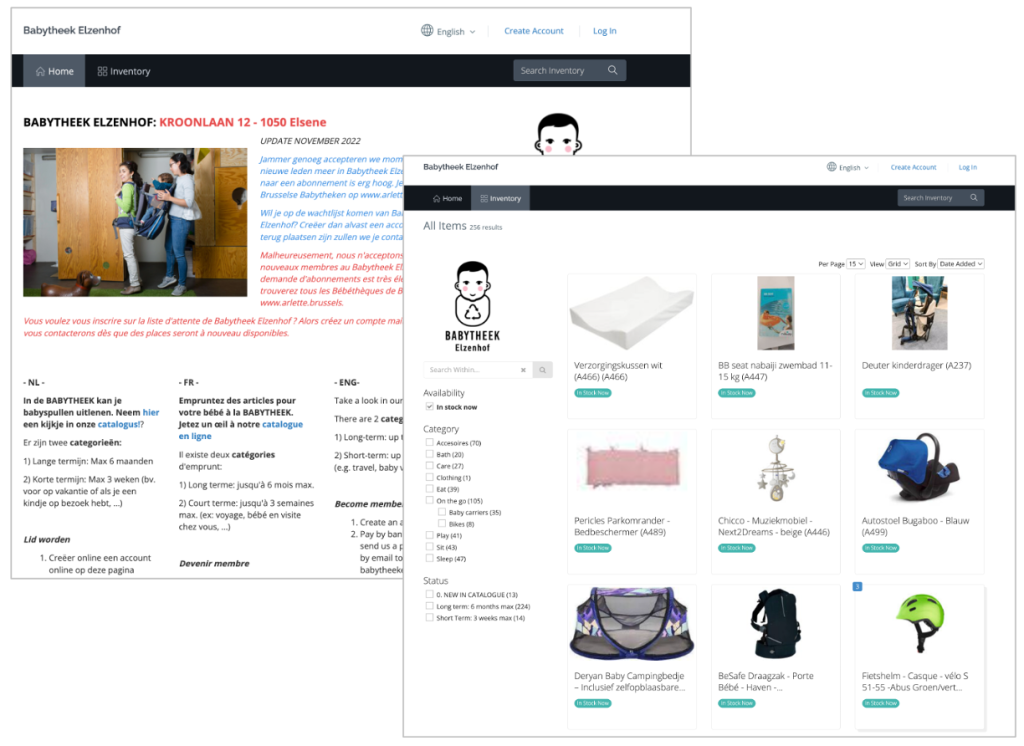
For some common baby items such as slings/carriers and washable nappies, it really makes sense to try out different systems to find what works for you before purchasing. (Or maybe you’ll discover that you don’t need to buy at all, if you find a good rental solution.)
The Brussels Childbirth Trust (BCT) has a sling library where members can try out different wraps, carriers and slings before deciding which one to rent. And they currently have 18 different samples! After paying a refundable €50 deposit, rental is €10 for the first two weeks, then €5 per week thereafter. Family membership of the BCT is just €55 per year and gives access to a huge range of advantages, like this! Plus, a few times per year members get the chance to learn more about babywearing in a practical 2-hour session led by enthusiastic and experienced volunteers.


The BCT also has a cloth nappy information service which guides members in choosing and using washable/cloth nappies in Belgium. In addition, members can borrow samples of different nappy systems to try out. For longer-term renting, there’s also the Facebook-based Nappy Library, run on a volunteer basis by working mum-of-2 Esmeralda Raskin. Here, after paying a refundable deposit of €75, you can rent out packages of different types of cloth nappies – the rental kit has enough changes for 2-3 days use, and costs €30 for 2 weeks or €50 for 1 month, and €35 per week thereafter. Esmeralda is also developing a kit especially for the newborn period. Plus, she stresses that family with financial issues shouldn’t be put off by the prices, and that these can be discussed.
Lastly, did you know that health insurance funds (‘mutuelles’ / ‘ziekenfondsen’) and pharmacies rent out items like breast pumps, baby weighing scales, ear thermometers, etc. This can be a great way to source items you’ll only need for a few weeks or months. Rest assured that any intimate parts (e.g. for breast pump) are always new and need to be purchased separately for a small price. Check out what’s available from your own mutuelle. Partenamut members can benefit from 3 months free rental of a breast pump, nebuliser and weighing scales for children age 0-3, and you can even find car seats, baby bouncers and stair gates in their offer.
The bottom line
In reality, beyond the basics linked to feeding (e.g. a breastfeeding pillow, or formula, bottles, and a steriliser), nappy changing (disposable or washable nappies and wipes), clothing (soft and comfortable clothing appropriate for the temperature), sleeping (a safe surface in a not-too-warm room), and transport (an appropriate car seat if you have a car, and another means like a baby carrier or pram), there’s not that much your baby actually NEEDS in the early weeks.
To avoid costly purchases you might regret, and improve your chances of having the baby items you need when you need them, draw on the experience of other parents, think carefully about what items make sense for your own lifestyle, and take advantage of the many different ways to source baby items in Brussels.



